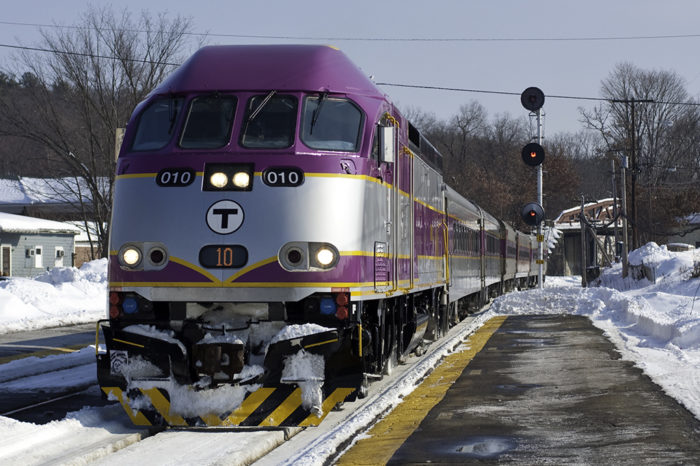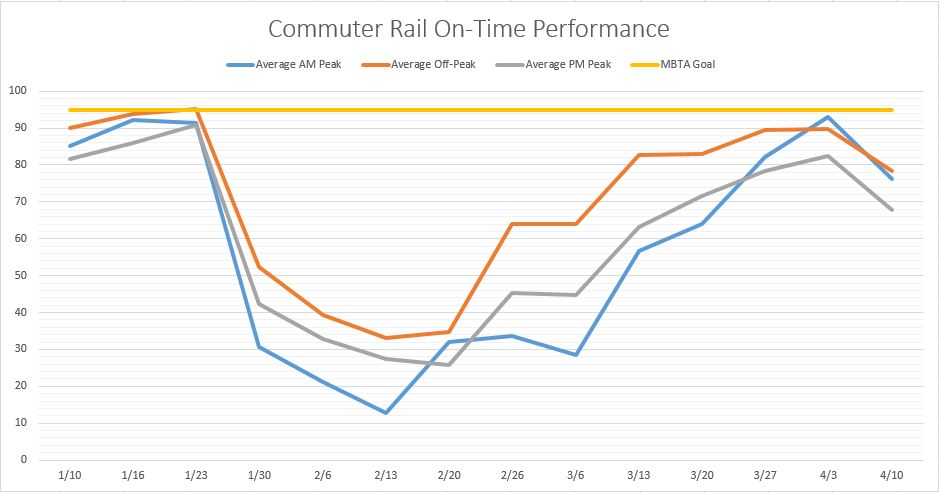MBTA Performance Transparency: A Whole New Meaning to Deferred Maintenance
Governments need to adapt to the evolving needs of constituents, and in modern times, this increasingly becomes a matter of embracing technology. Examples of such progress include the ParkBoston App, eliminating the need for runs to feed the meter, and the cashless tolling system which is destined to relieve at least some of the Pike’s toll booth logjams. These uses of technology clearly improve basic government functions for the sake of consumers.
Technology also eases government transparency efforts. Instead of manually copying hundreds of pages, an information request can be fulfilled by email. Technology has also increased the amount of data that governments have available. In this information age, thousands of data points are collected about healthcare, welfare, utilities, traffic, and transportation systems, allowing for data-driven analysis and reform.
Unfortunately, government is often slow to adopt new technologies, and when it does, the initiatives often do not work as planned (Massachusetts Health Connector, automatic mailings which erroneously cut off benefits at the Department of Transitional Assistance, and other poorly procured IT contracts). Indeed, when it comes to the MBTA’s performance scorecards, declared a work-in-progress when they were created in September, positive progress has been completely absent.
These scorecards provide an important window into the workings of Boston’s transit system, allowing commuters and watchdogs to easily notice changes in performance. Last winter, as the T ground to a halt, Pioneer used what little performance information was published at the time to draw attention to the system’s failures. As the city was buried in historic snow levels, the T’s on-time performance melted away.
MBTA Commuter Rail On-Time Performance, January-April 2015:
The MBTA used to publish detailed performance reports for all modes of transportation that included statistics about equipment breakdowns, vehicle availability, and even differentiated between minor and major delays. This reporting scheme was aborted in late 2014, just before the city was blanketed in feet of snow. The replacement reports (used to create the above graph) dealt solely with the commuter rail system and neglected to include information regarding equipment breakdowns or distinguish between minor and major delays.
Finally, in September, the T created a new scorecard including all modes of transportation, but only providing cursory on-time performance statistics. At the time, the T insisted that this was the beginning of a work-in-progress. Pioneer has noted (here and here) that these reports have seen no progress at all since their inception over four months ago.
As is common in the age of big data, the T receives daily and weekly reports from Keolis (the commuter rail operator) including all sorts of performance data. Likewise, the T produces similar internal reports for the subway and bus systems. There is no reason that these data-rich reports should not be made public, at least on a weekly basis. Providing more information allows commuters to better plan their trips and understand the problems facing the agency.
The furor that erupted across the region in response to last winter’s performance fomented a reform movement that has paused costly anti-privatization laws, and installed a fiscal and management control board for the agency, relieving its chief executives of operational responsibility. These measures were not taken lightly by the legislature, and should have sent a clear signal to the T that public confidence in the system had reached rock bottom.
At this point, the T has two choices. Wait for the legislature to repair our broken public records law and force more disclosure online, or take decisive action to increase transparency on its own. By moving independently, the MBTA will be sending a message that it cares about repairing its relationship with commuters and is willing to open its performance to public scrutiny. Such a move will also prove that our state’s government is willing to leverage technology for public benefit.
The data is there, it just needs to be utilized.
As we enter the heart of yet another winter, the T must do better. Management should learn from last year’s mistakes and fix its relationship with commuters by following through on its promise to make progress, both in customer service and transparency. Until then, broken promises will only continue to tarnish the public’s trust.
Scott Haller is a senior at Northeastern University who began working at Pioneer Institute through the Co-op Program.




